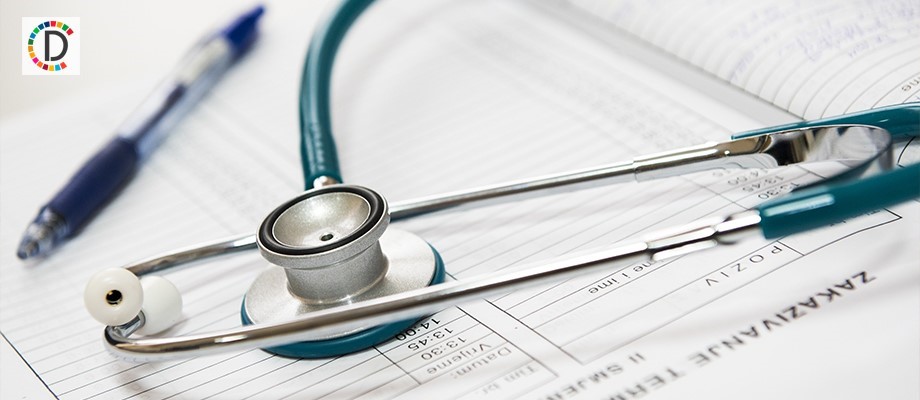Health News Roundup: Ahead of Trump rally in Oklahoma, coronavirus cases; Amazon forest fires could increase risk of COVID infections and more
WHO sees 'green shoots' of hope in COVID-19 pandemic Signs of hope are starting to show in the fight against the COVID-19 pandemic, the World Health Organization (WHO) said on Wednesday, but it added that countries must continue to work on prevention measures to limit the spread of the new coronavirus.

Following is a summary of current health news briefs.
Ahead of Trump rally in Oklahoma, coronavirus cases surge in several states
Just days before U.S. President Donald Trump's campaign rally in Tulsa, the biggest event in the country since pandemic restrictions were imposed in March, new coronavirus cases are surging in Oklahoma, Arizona and other states. The spike in new cases reported on Wednesday and over the last two weeks points to a troubling trend in the United States, where cases have risen nationally after falling for more than a month.
Amazon forest fires could increase risk of serious coronavirus infections
An intense season of fires in the Amazon rainforest this year could overwhelm health systems and lead to unnecessary deaths, including of coronavirus, as pollution worsens respiratory conditions, public health experts said on Wednesday. Forest fires destroy many thousands of hectares of Amazon rainforest across Latin America each year. As peak burning season approaches, experts say intense fires and the particles they give off could exacerbate coronavirus infections.
EU calls for global alliance to buy COVID-19 vaccines up front
The European Commission called on Wednesday for global leaders to cooperate to buy bulk quantities of potential COVID-19 vaccines, to avoid "harmful competition" in the race for a shot and ensure any future vaccine is available for poor countries. With around a dozen potential vaccines now in human trials, rich countries have been rushing to buy up doses in advance from pharmaceutical companies, to make sure they will have enough supply should any prove successful.
Gilead to enroll pediatric patients for late-stage remdesivir study
Drugmaker Gilead Sciences said on Wednesday it will soon begin enrollment of pediatric patients with moderate-to-severe COVID-19 in a late-stage study testing its experimental drug, remdesivir. The trial will assess the effectiveness and safety of the drug in the patients, which would include newborns to adolescents, across more than 30 sites in the United States and Europe, the company said.
Steroid should be kept for serious coronavirus cases, WHO says
A cheap steroid that can help save the lives of patients with severe COVID-19 should be reserved for serious cases in which it has been shown to provide benefits, the World Health Organization said on Wednesday. WHO chief Tedros Adhanom Ghebreyesus said research was at last providing "green shoots of hope" in treating the virus, which has killed more than 400,000 people worldwide and infected more than 8 million.
'Medicaid best price' changes aimed at value-based gene therapy contracts: U.S. agency
Proposed changes to requirements that state-run Medicaid programs are given the best drug prices would clear the way for commercial health insurers to enter into "value-based" payment schemes, the U.S. Centers for Medicare & Medicaid Services said on Wednesday. Drug manufacturers by law must give Medicaid their “best price,” meaning the lowest price they negotiate with any other buyer. But health plans have expressed concerns that the requirement prevents them from linking drug prices to patient outcomes - a practice known as "value-based" pricing.
Requiring masks 'political hazard' as COVID-19 surges in California breadbasket
The first wave of COVID-19 came slowly to San Joaquin County in the heart of California's breadbasket, but the much-feared second surge is roaring through, sickening as many people in the two weeks since Memorial Day as in March and April combined. Hospitalizations have spiked by 40%, and the county is one of ten in the most populous U.S. state put on a watch list of places that might be ordered to lock down their economies again after weeks of careful reopening.
Italian study shows no improvement from Roche's rheumatoid arthritis drug for COVID-19
Roche Holding AG's Actemra did not improve symptoms in patients with early-stage COVID-19 pneumonia, scientists conducting a study of the drug in Italy said on Wednesday, raising questions about the potential of the Swiss drugmakers' rheumatoid arthritis drug to treat the novel coronavirus. The study compared patients who received anti-inflammation drug Actemra to those given standard treatment, and concluded that Actemra did not reduce severe respiratory symptoms, intensive care visits, or death.
Black patients with COVID-19 in Atlanta more likely to be hospitalized: CDC
A study of coronavirus patients in Atlanta has found that black patients are more likely to be hospitalized than white patients, highlighting racial disparities in the U.S. healthcare system, researchers from the Centers for Disease Control and Prevention (CDC) said on Wednesday. About 79% of black patients were hospitalized for COVID-19, the disease caused by the novel coronavirus, against 13% of white patients, according to the study https://www.cdc.gov/mmwr/volumes/69/wr/mm6925e1.htm?s_cid=mm6925e1_w across six metropolitan hospitals and outpatient clinics in Atlanta, Georgia, between March and April 2020.
WHO sees 'green shoots' of hope in COVID-19 pandemic
Signs of hope are starting to show in the fight against the COVID-19 pandemic, the World Health Organization (WHO) said on Wednesday, but it added that countries must continue to work on prevention measures to limit the spread of the new coronavirus. While cases are "still rapidly rising" in many regions of the world, there are "green shoots of hope", the WHO's Director General Tedros Adhanom Ghebreyesus said in an online media briefing.
ALSO READ
Europe's Military Boost: A New Era of Conscription and Recruitment
Tech and Commodities Lead Steady European Market Start
European Regulators Crack Down on Big Tech's Antitrust Practices
European Markets Tread Cautiously Amidst Tech and Commodity Gains
U.S.-Russia Peace Talks Stalled Amid European, Ukrainian Concerns










